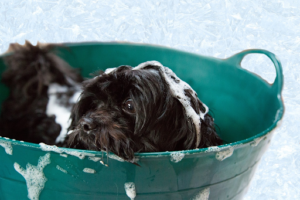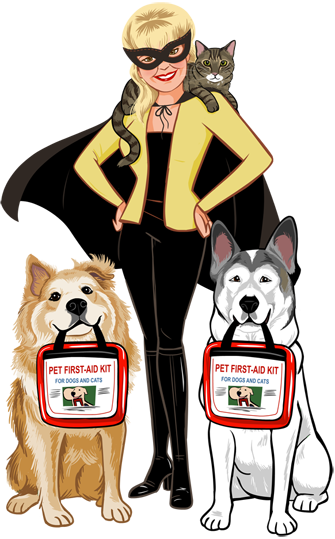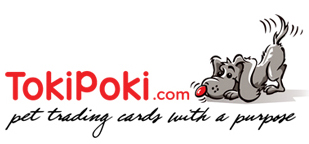
Don’t we want the very best for our furry friends?
We feed them high-quality food, take them to the vet for regular checkups, and provide them with a safe and comfortable home. But have you considered the impact that the products you use on your pets could have on their health? Chemicals in pet products can be harmful and lead to a range of health issues, from skin irritation to cancer.
Chemicals can be found in a variety of pet products, including food, toys, grooming products, and cleaning supplies. These chemicals can include preservatives, artificial colors and flavors, and synthetic fragrances, to name a few. While these chemicals may seem harmless, they can accumulate in your pet’s system over time, leading to negative long-term health effects. You can avoid all that and even reduce your pet’s environmental impact by using natural, toxic-free products.
Harmful Ingredients in Pet Products and Their Risks
Pets are constantly exposed to a wide range of chemicals, from the food they eat to the products they use. While some chemicals are safe, others can pose a risk to your pet’s health.
Here are some harmful ingredients that can cause health problems for your pet:
- Artificial preservatives, colors, and flavors, such as BHA and BHT, are often added to pet food to extend their shelf life and have been linked to cancer and other health problems in animals.
- Phthalates and parabens are often found in grooming products such as shampoos and conditioners. Phthalates have been linked to reproductive problems in male animals, while parabens have been linked to cancer and hormone disruption in both animals and humans.
- Formaldehyde, which is used as a preservative in some pet grooming products and can irritate the skin and respiratory system and is a known carcinogen.
- Sodium lauryl sulfate (SLS) is a chemical that is often found in pet shampoos and can cause skin irritation, particularly in animals with sensitive skin. SLS can also be absorbed through the skin and has been linked to organ toxicity.
- Propylene glycol is often used in pet foods and treats to add moisture and flavor. However, propylene glycol can be toxic to pets, particularly cats, and can cause anemia, liver damage, and other health problems.
Exposure to these harmful chemicals can lead to a range of health problems in pets. Skin irritation and allergic reactions are common, particularly when pets are exposed to synthetic fragrances and preservatives. Respiratory problems, such as coughing and wheezing, can also occur when pets are exposed to airborne chemicals.
In more serious cases, exposure to certain chemicals has been linked to cancer, reproductive problems, and organ damage. For example, some pesticides and herbicides have been linked to cancer and other health issues in pets. Chemicals such as bisphenol A (BPA), which is commonly found in plastic products, can disrupt the endocrine system and lead to reproductive problems in animals.
Choosing natural and non-toxic products for your pet can be a simple and effective way to reduce their chemical exposure.
Natural and Non-Toxic Pet Products
When it comes to choosing natural and non-toxic products for your pet, there are a lot of options to consider. From food and treats to grooming supplies and toys, there are many different types of chemical-free products available on the market. In this section, we’ll explore some of the different types of chemical-free pet products and why it’s important to choose them for your pet.
Natural and non-toxic pet products are those that are made from high-quality, organic, and sustainable ingredients, and are free from harmful chemicals and additives. These products are designed to promote your pet’s health and well-being, without exposing them to the potential risks associated with synthetic chemicals.
Some examples of chemical-free pet products include:
- Natural and organic pet food: These types of pet foods are made with high-quality ingredients and are free from synthetic preservatives, colors, and flavors.
- Non-toxic grooming supplies: This includes shampoos, conditioners, and other grooming products that are free from harmful chemicals such as parabens, phthalates, and formaldehyde.
- Eco-friendly toys: Toys made from natural materials such as wool, cotton, and bamboo are a great option for pet owners who want to reduce their pet’s exposure to synthetic materials and chemicals.
- Natural flea and tick prevention: Natural flea and tick prevention products are free from harsh chemicals such as pyrethroids and can be a safer alternative for your pet.

Benefits of Chemical-Free Products
Choosing natural and non-toxic products for your pet can bring only good things, both for your furry friend and the environment. Not only can it improve their health and well-being, but it can also help reduce pollution and promote sustainability.
Let’s explore some of these benefits.
Improved Health
Using natural and non-toxic products can improve your pet’s health in several ways:
- Reduced Risk of Health Problems: Chemical-free products can help reduce your pet’s exposure to harmful chemicals, which can lower their risk of developing health problems such as cancer, organ damage, and respiratory problems. Choosing natural and organic pet food can help reduce your pet’s exposure to synthetic preservatives and additives that have been linked to cancer and other health issues.
- Better Digestion: Many conventional pet foods contain artificial preservatives, colors, and flavors that can be difficult for pets to digest, leading to stomach upset and other digestive problems. Pet food that’s free of artificial preservatives and other harmful chemicals and uses whole, high-quality ingredients, can help improve your pet’s digestion and overall health. Raw food, as trusted pet site Petzyo suggests, is a prime example of natural pet food that can greatly improve digestion.
- Enhanced Immunity: Providing your pet with natural pet food with essential nutrients and antioxidants, including raw food, can help enhance their immunity. Many natural and organic pet foods contain ingredients such as fruits, vegetables, and herbs that are rich in vitamins and antioxidants, which can help boost your pet’s immune system and protect them against disease.
- Improved Skin and Coat: Natural grooming products can help improve your pet’s skin and coat by reducing irritation and inflammation. No stripping the skin and coat of their natural oils as chemical-laden products tend to do, which then leads to dryness, itching, and flaking. If you use natural grooming products with gentle and nourishing ingredients such as oatmeal, aloe vera, and chamomile, you can help soothe your pet’s skin and improve the condition of their coat.
- Reduced risk of allergies and sensitivities: Many pets are sensitive to synthetic fragrances and other chemicals, which can cause skin irritation, respiratory problems, and other health issues. By choosing natural and non-toxic products, you can help reduce the risk of allergies and sensitivities in your pet and promote their overall health and well-being.
Environmental Benefits
Many pet products that are not natural may contain synthetic materials or chemicals that can harm the environment when they are produced or disposed of. For example, some of the chemicals used in pet shampoos, flea treatments, or other products can enter the water supply, pollute waterways, and harm wildlife.
In contrast, natural pet products are made from eco-friendly and sustainable ingredients that are less harmful to the environment. They are often produced using methods that have minimal impact on the environment and may be packaged using recycled materials or biodegradable plastics, further reducing their environmental impact.
Improved Quality of Life
Using chemical-free products can also enhance your pet’s quality of life. Chemical-free products can help reduce irritation and discomfort, which can make your pet more comfortable and content. Some chemicals can disrupt your pet’s endocrine system, leading to behavioral problems such as anxiety and aggression.
By minimizing your pet’s exposure to harmful chemicals, you can help improve their behavior and overall well-being. Moreover, chemical-free products are particularly helpful for pets with allergies or sensitivities, as they can eliminate potential irritants and allergens from your pet’s environment, helping to reduce their symptoms and improve their quality of life.
Tips for a Chemical-Free Life for Your Pet
Making the transition to a chemical-free lifestyle for your pet can seem overwhelming at first, but with some simple changes and adjustments, you can provide a safer and healthier environment for your furry friend. In this section, we’ll provide some tips on how to make the switch to natural and non-toxic pet products and improve your pet’s overall well-being.
Read the Labels
One of the most important steps in choosing chemical-free products for your pet is to read the labels carefully. Look for products that are free from synthetic fragrances, colors, and preservatives, and avoid ingredients such as phthalates, parabens, and formaldehyde. Choose products made from natural and organic ingredients, and opt for products with clear and transparent labeling.
Look for Eco-Friendly Products
When choosing chemical-free pet products, look for eco-friendly options that use sustainable and recyclable materials. Opt for products that are packaged using recycled paper or biodegradable plastics, and choose toys made from natural materials such as wool or cotton.
Make Your Own Products
Another way to ensure your pet is using natural and non-toxic products is to make your own. Homemade pet shampoos, treats, and toys are easy to make using natural and safe ingredients. This is also a great way to control what goes into your pet’s products and ensure they are free from harmful chemicals.
Choose the Right Veterinarian
Finding a veterinarian who supports your desire for chemical-free living for your pet is important. Make sure your veterinarian is knowledgeable about natural and non-toxic products and can recommend safe and effective alternatives to conventional treatments.
Be Patient
Making the transition to a chemical-free lifestyle for your pet can take time and patience. Be prepared to try a variety of different products and make adjustments until you find the right combination that works for your pet. Start with one or two products at a time and gradually transition to a full chemical-free routine.
Conclusion
By choosing chemical-free products, you can give your pet the best chance at a long and healthy life, while also contributing to a healthier environment for everyone. So why not start today and make the switch to chemical-free products for your beloved pet?
Remember that this transition may take some time and patience, but every small step you take can make a big difference.








